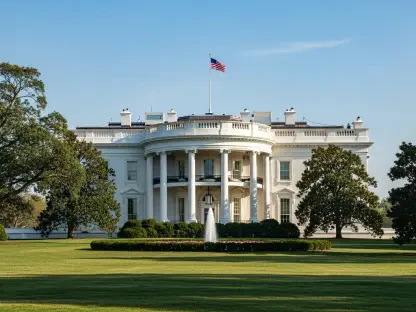In the interview with Donald Gainsborough, a seasoned leader in policy and legislation, we explore the multifaceted evolution of Birmingham, Alabama, as it shifts from its historical industrial roots to emerge as a burgeoning tech hub. Gainsborough offers insights into how the city is reclaiming its innovative spirit through technology and biotechnology, driven by local institutions, startups, and strategic state and federal efforts.
Can you discuss Birmingham’s historical significance in the iron and steel industry and how this history influences its current development?
Birmingham’s history is deeply rooted in the iron and steel industry, with unique natural resources positioning it as a major player in these sectors. This industrial legacy has instilled a sense of ingenuity that continues to influence the city today. It spurred the initial growth, leading to the vibrant entrepreneurial spirit we see now. This historical backdrop sets the stage for Birmingham’s current focus on becoming a tech hub, tapping into this legacy to foster new technologies, particularly in metal industries.
How did the city of Birmingham become pivotal during the Civil Rights movement of the 1960s?
Birmingham became a focal point of the Civil Rights movement due to its stark racial segregation and the resulting tension. The city was the stage for key protests, notably the Birmingham campaign, demonstrating both local and national civil rights advocacy. Transformative events, like the tragic church bombing in 1963, galvanized national support for legislative change, notably the Civil Rights Act, marking Birmingham as a crucial battleground in the struggle for equality.
What factors are contributing to Birmingham’s emergence as a technology hub?
Several factors are driving Birmingham’s rise as a technology hub. These include the presence of a skilled workforce, a supportive governmental infrastructure, and substantial investments from venture capitalists. The city has cultivated a nurturing ecosystem with startup incubators and notable educational institutions like the University of Alabama at Birmingham (UAB), propelling research and innovation especially in biomedicine, positioning the city as a place ripe for tech advancement.
How has the University of Alabama at Birmingham played a role in the city’s tech growth?
The University of Alabama at Birmingham has been pivotal to the city’s tech growth through its world-class research, particularly in biotechnology. UAB attracts substantial federal research funding, which it channels into innovation and technology development. Its initiatives not only generate economic benefits but also support local startups through partnerships and provide a steady stream of skilled graduates ready to contribute to the tech and biotech sectors in Birmingham.
Can you describe the impact of biotechnology research on Birmingham’s economy?
Biotechnology research has significantly impacted Birmingham’s economy by attracting federal funding and fostering companies specializing in innovative medical solutions. Facilities like the Southern Research Institute have developed several FDA-approved drugs, drawing attention and investment to the city. This has spurred further development in related sectors, aligning economic strategies to nurture homegrown companies, thus reinforcing Birmingham’s status as a center for biotech innovation.
What challenges has Birmingham faced in its journey to becoming a tech hub?
Birmingham has faced multiple challenges on its journey to becoming a tech hub, including overcoming the narrative of its industrial past and addressing the recent federal funding setbacks. The city must also contend with regional competition and a need for cohesive local government action among Jefferson County’s municipalities. Despite these hurdles, Birmingham remains committed to fostering a resilient tech ecosystem that can sustain long-term growth.
Could you explain the significance of the Sloss Tech conference for the local tech community?
Sloss Tech plays a vital role in Birmingham’s tech community by providing a platform for tech enthusiasts, startups, and investors to connect, share ideas, and highlight technology initiatives. It showcases innovation in the city, encourages collaboration, and draws attention to Birmingham’s tech capacity, thereby bolstering its reputation as an emerging tech hub.
In what ways are local startup incubators helping to foster new companies in Birmingham?
Local startup incubators like Innovation Depot provide critical support for new companies through resources such as office space, mentorship, and networking opportunities. They act as catalysts for growth, offering environments where startups can thrive and access to funding and strategic partnerships that are crucial in their early stages of development.
What are some successful startups that have emerged from Birmingham, and what impact have they had?
Successful startups such as Shipt, which was acquired by Target, and TheraNest, have emerged from Birmingham, proving the potential of local tech ventures. These successes not only validate Birmingham as a tech innovation center but also create a ripple effect, attracting more investment and talent to the area, thereby reinforcing the city’s tech scene.
How did the Innovation Depot contribute to the growth and development of startups in the city?
Innovation Depot has served as an incubator and accelerator for startups, playing a key role in their growth by providing not just space, but a supportive ecosystem that promotes innovation. It’s been instrumental in encouraging a culture of entrepreneurship within Birmingham, helping numerous startups gain traction, scale operations, and succeed in wider markets.
What roles do Southern Research and its new Station 41 incubator play in supporting biotech startups?
Southern Research and Station 41 are crucial for biotech startups, offering valuable resources like wet lab spaces and expert guidance. Station 41 provides startups with specialized facilities they wouldn’t easily find elsewhere, fostering an environment conducive to groundbreaking research and helping these companies commercialize their innovations efficiently.
How is the city of Birmingham retaining local talent and encouraging entrepreneurship?
Birmingham retains local talent by creating opportunities for career growth, emphasizing education and skill development through initiatives like Ed Farm, and nurturing a supportive environment for startups. These efforts aim to keep skilled individuals engaged with the city’s tech sector, coupled with strategies to attract and sustain broader community investments.
Can you explain the significance of Shipt’s sale to Target and its decision to remain in Birmingham?
Shipt’s sale to Target and its decision to stay in Birmingham highlighted the city as a viable base for major tech enterprises. This move shifted perceptions, proving that successful companies can thrive without relocating to traditional tech hubs, thereby inspiring other startups to envision Birmingham as a long-term home.
What types of training and educational initiatives, like Ed Farm, are in place to prepare the next generation for tech careers?
Educational initiatives like Ed Farm focus on equipping students with essential digital skills, including coding and other tech proficiencies. These programs are integral in preparing the future workforce to meet the demands of the evolving job market, ensuring students are well-positioned for careers in technology and innovation-driven fields.
How does the Birmingham Business Alliance support the local tech economy?
The Birmingham Business Alliance supports the local tech economy by providing advocacy, facilitating partnerships, and promoting regional economic development. It fosters an environment conducive to business growth and works to align local policies with tech sector needs, ensuring Birmingham remains competitive and attractive to tech companies and entrepreneurs.
What impact did the revocation of Birmingham’s federal Tech Hub grant have on the city’s plans, and how are leaders responding?
The revocation of the federal Tech Hub grant was a setback, but city leaders have remained resilient, continuing to pursue their tech development plans with local resources and reapplying for federal funding. Their commitment demonstrates determination to maintain momentum towards establishing Birmingham as a major tech center.
How is the city working towards reapplying for the federal Tech Hub funding?
Birmingham is meticulously preparing to reapply for the Tech Hub funding by enhancing project proposals, emphasizing potential economic impacts, and demonstrating the progress made despite previous setbacks. Local leaders are actively seeking to align regional efforts with federal goals to strengthen their application and secure the needed investment.
Can you elaborate on how regional cooperation among Jefferson County’s municipalities can benefit Birmingham’s tech scene?
Regional cooperation among municipalities can significantly enhance Birmingham’s tech scene by pooling resources, fostering shared initiatives, and reducing competition. Collaborative efforts encourage a unified approach to economic development that can lead to greater innovation, attract more businesses, and enhance the overall competitiveness of the region.
What is Tech280, and how does it aim to foster innovation along the U.S. Highway 280 corridor?
Tech280 is an initiative designed to create an innovation corridor along U.S. Highway 280, promoting collaboration among cities and tech companies in the region. By aligning innovation assets such as universities, research institutions, and tech firms, Tech280 seeks to enhance connectivity, drive economic development, and attract investment.
How are state-level economic strategies, like Gov. Kay Ivey’s Catalyst plan, influencing Birmingham’s focus on the bioscience industry?
State-level strategies like Gov. Kay Ivey’s Catalyst plan prioritize investment in sectors like bioscience, encouraging Birmingham to focus on these industries due to their potential for growth and economic impact. This support creates opportunities for local biotech companies to expand and position the city as a leader in life sciences.
What measures are being taken to address the “vibrancy gaps” in Birmingham’s economy?
Measures to address the “vibrancy gaps” include offering tax incentives, nurturing startup ecosystems, and revitalizing unused urban spaces. These strategies aim to boost economic activity, attract new businesses, and encourage established companies to stay and grow, thus enhancing Birmingham’s overall economic vibrancy.
What is your forecast for Birmingham becoming a leading center of innovation once again?
Birmingham is well-positioned to become a leading center of innovation by leveraging its historical strengths, fostering strong community networks, and aligning regional as well as state efforts towards common goals. Continued investment in education, infrastructure, and startup ecosystems will be pivotal, along with sustained cooperation and strategic use of technology. The city must capitalize on these opportunities to fulfill its potential as a hub of innovation.









